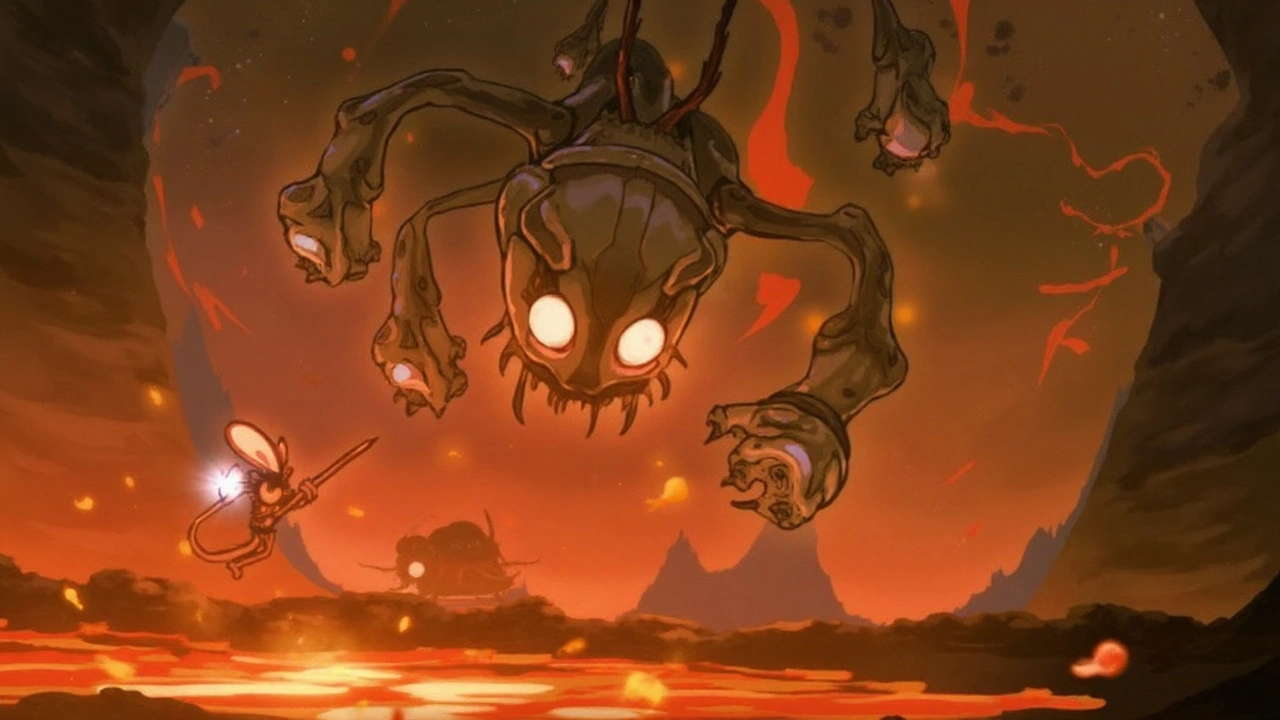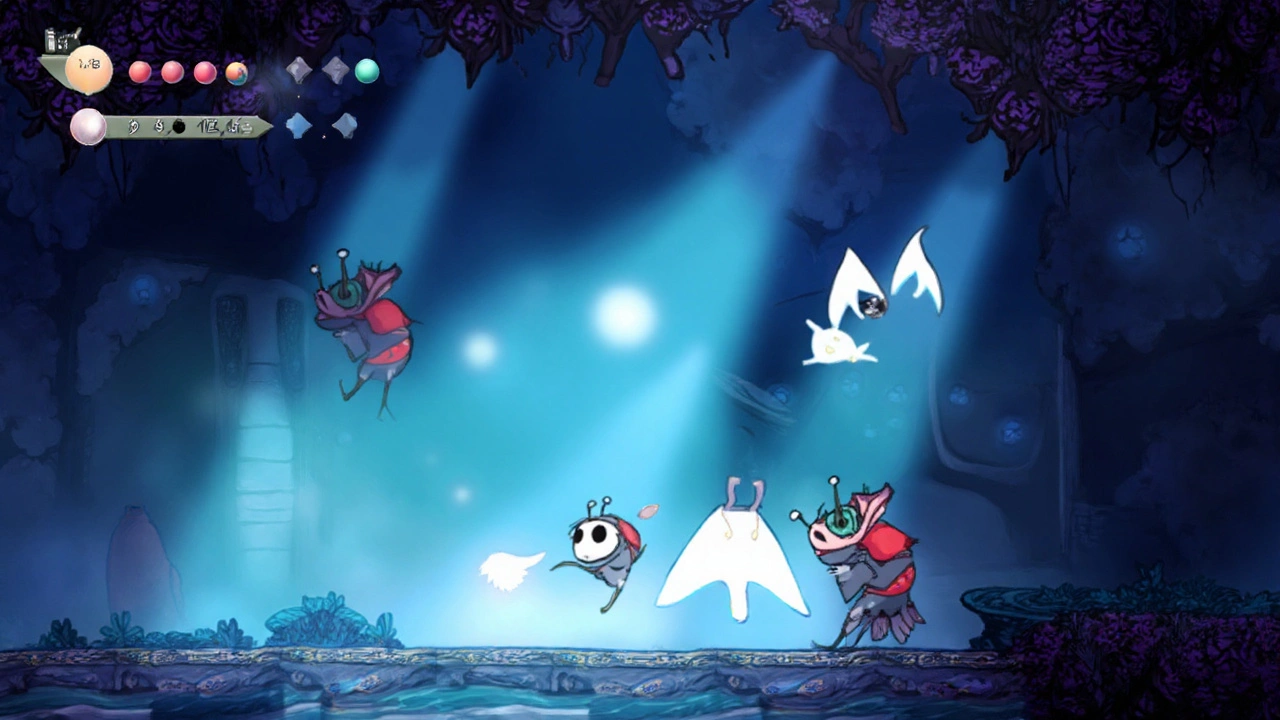Hollow Knight: Silksong skips early review codes as Team Cherry puts backers first
 Sep, 5 2025
Sep, 5 2025
No reviews on launch day? That’s the plan. Team Cherry says it won’t send early codes for Hollow Knight: Silksong ahead of its September 4 release, meaning critics will publish only after the game is out in the wild.
By Martin
No early review codes: what that means for players
This is a break from the norm. Most publishers send review builds to outlets a week or two before release and lift embargoes a day or two ahead of launch. That gives buyers a clear picture before spending money. Here, you’ll likely see first impressions, day-one performance checks, and scored reviews land after launch day—once journalists get the same build as everyone else and have enough time to finish it.
There is some guidance already. A handful of outlets played curated hands-on demos at events, and those previews leaned positive. Reporters praised the fluid movement, crisp combat timing, and the sharp art direction that defined the first game. The sequel looks faster and more vertical, with a stronger emphasis on precision and momentum. But previews are not full reviews. They don’t cover late-game difficulty spikes, performance on different hardware, or how systems hold up after 20 hours.
For players, the risk is simple: less vetted info at the point of purchase. One big safety net is Xbox Game Pass, where Silksong is included at launch. Subscribers can try it without a separate buy-in. If you’re planning to purchase outright, you may want to wait a day or two while performance reports and early reviews roll in.
What to do on launch day if you’re cautious?
- Scan trusted outlets’ early impressions and note the time they spent with the retail build.
- Watch for performance checks from creators who focus on your platform.
- Keep an eye on day-one and day-two patches; indies often push quick hotfixes.
- Avoid spoiler-heavy streams if you care about discovery and boss reveals.

Why Team Cherry is doing this—and the trade-offs
Team Cherry framed the move as a fairness call. They don’t want critics playing before the community that helped launch the original Hollow Knight on Kickstarter. It’s a values play: keep loyalty with the earliest supporters and let everyone discover the sequel at once, rather than staging a weeks-long drip of pre-release coverage.
There are side benefits. Withholding codes reduces leak risk and helps keep story beats under wraps. It also eases the pressure on a small team that might not have a big PR operation to support a long pre-release review cycle. When the build goes live for players, it goes live for critics too—same content, same patch level, same balance.
But there are real downsides. Skipping early codes can spark suspicion among buyers trained by past fiascos to read this as a red flag. The memory is still fresh: Bethesda’s 2016 policy shift that delayed reviews caused backlash, and CD Projekt Red famously limited console review access for Cyberpunk 2077, which backfired when performance issues surfaced at launch. Those cases involved big publishers and marketing-heavy rollouts; Team Cherry is a small studio with a different calculus, but the consumer reflex is understandable.
The business impact cuts both ways. Without early reviews, launch-day news feeds and storefronts lean on previews and social buzz instead of Metacritic snapshots. That can slow cautious buyers. On the flip side, Game Pass lowers the barrier, and the Hollow Knight brand has deep goodwill. Many fans intend to play regardless. The lack of early scores may have a smaller effect here than it would for a new IP.
Expect timing to shape coverage. Reviewers will need enough hours with the retail build to judge difficulty curves, boss design, map readability, and late-game pacing. Outlets may publish in stages: a spoiler-free “first 10 hours” piece, then a scored review, then deep-dive columns on build variety and secrets. If the game is long and tough—as fans expect—full reviews could take several days.
What about quality hints? Previews suggested a confident sequel that builds on what worked: tight platforming, elegant combat rhythms, and a world that invites exploration rather than forcing it. Animations look cleaner, enemy tells feel readable, and the soundscape continues to do a lot of the emotional lifting. The big question marks are technical: performance across platforms at launch, load times in dense areas, and how the save system handles failure loops during tough boss runs.
There’s also the spoiler factor. Metroidvania games live on discovery—hidden paths, ability checks, odd NPCs who matter later. One reason some studios avoid early codes is to keep those moments intact until players can find them together. If that’s part of Team Cherry’s thinking, it fits the community-first message they’re sending.
For buyers trying to plan: if you’ve pre-installed through Game Pass, you’re in a low-risk spot—play and decide. If you’re buying on day one, set expectations. Watch for patch notes, check a couple of early impressions from reviewers whose taste aligns with yours, and give it 24–72 hours for thorough reviews to land. If you’re sensitive to performance drops or accessibility needs, it’s worth waiting for concrete testing and settings breakdowns.
Zoom out, and this is a classic indie trade: less pre-launch polish in the press, more control over how the community experiences the game. It won’t change the fever around Silksong; it might even amplify launch-day chatter as players and critics discover it together. What happens next depends on the game itself. If the sequel sticks the landing, the lack of early codes will be a footnote. If it stumbles, the debate over review timing will get loud fast.
One thing is certain: the conversation won’t stop at midnight. Expect a wave of impressions, performance threads, and early guides within hours of release, followed by fuller reviews later in the week. Until then, patience—or Game Pass—might be your best friend.